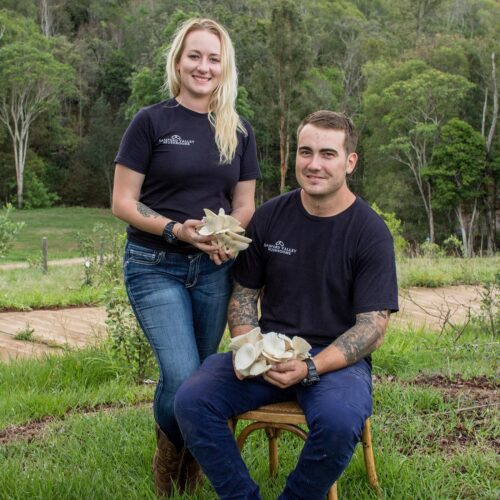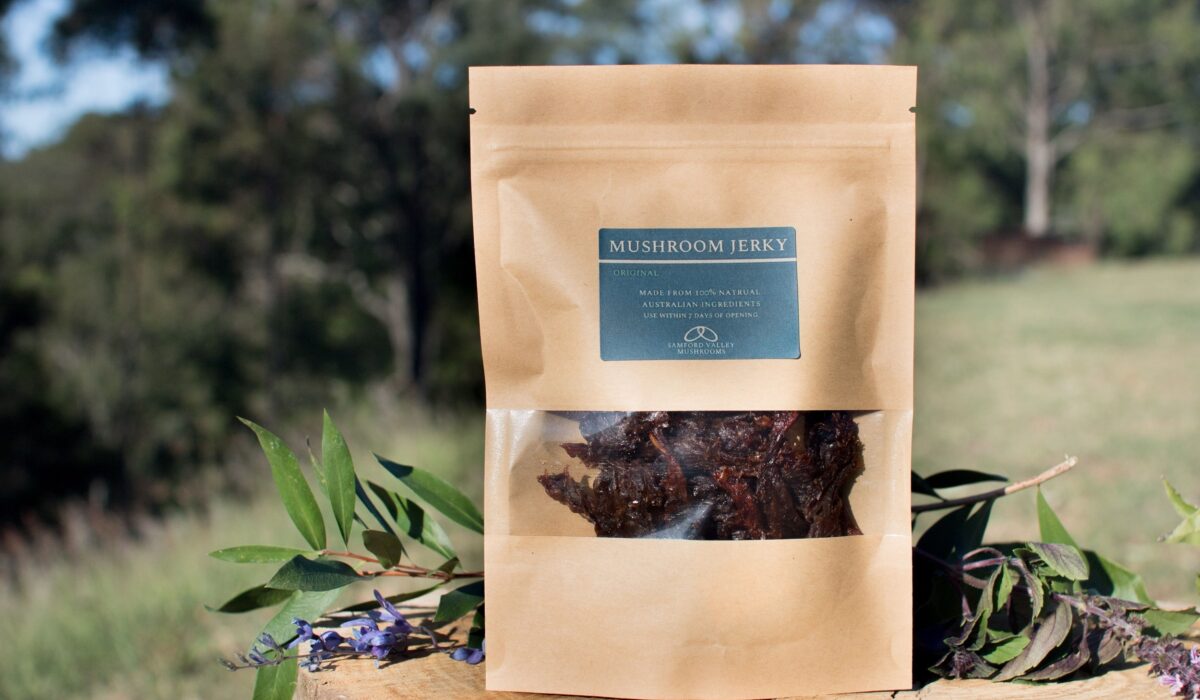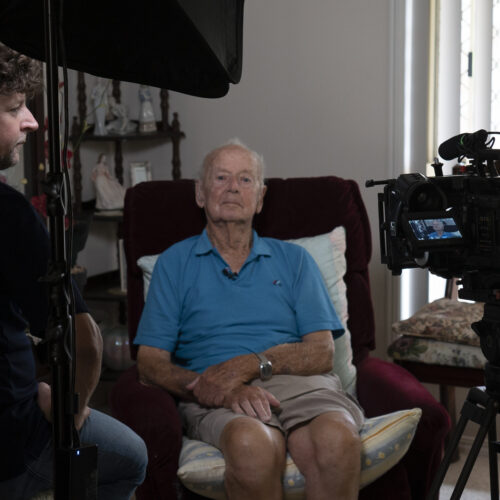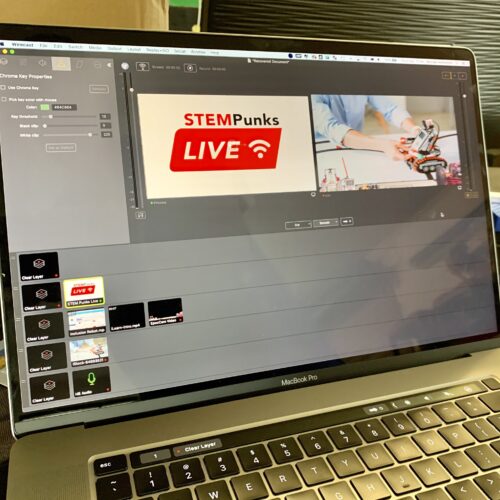Samford Valley Mushrooms is an agribusiness focused on the sustainable production of gourmet and medicinal mushrooms. The family business started in 2018 as more of a hobby for Madi Leicester and Mitch Bignell, who already ran their own electrical contracting business.
The idea for the business came from Madi’s enterprising Dad, who found an article on a company that used recycled coffee grounds to grow mushrooms. Madi researched mushroom cultivation and learned that varieties of mushrooms offer health benefits such as boosting the immune system, increasing cognitive function and even playing a role in fighting cancer. She saw a market opportunity for high quality natural medicines made from mushrooms.
Samford Valley Mushrooms produce varieties such as Lions Mane, Reishi, Turkey Tail, and Pearl Oyster. Aside from fresh mushrooms, they make refined medicinal products in the form of liquid extracts of the mushrooms. While the process for growing mushrooms is essentially quite simple, planning and preparation are critical. The owners subscribe to the regenerative farming ethic of sustainable production, reusing and recycling to reduce waste. They use disposed coffee grinds as well as wood chips and saw dust from a local timber mill as a basis of their substrate mixture that the mushrooms feed on as they grow. Once the mushrooms have completed the incubation and fruiting process, fresh product is picked and delivered to restaurants while additional processing is undertaken to produce the liquid extracts and supplements.
By the end of 2019, production was at capacity and Madi and Mitch were employing seven staff including two with disabilities. At the start of 2020, Samford Valley Mushrooms had strong growth prospects with their sales growing online, at local markets and to restaurants in their area.

COVID impacts
When the COVID-19 shutdown of restaurants was announced, the startup lost all their restaurant clientele overnight. There was also a 73 per cent decline in their medicinal extract sales. Madi and Mitch needed to work out what to do with the stock that was ready for market. Since it takes about six weeks to grow the mushrooms, there was considerable supply that would potentially be wasted. So, rather than just wasting it, Madi and Mitch chose to donate it to local charity groups hosting dinners for bushfire victims at the time.
With no revenue from sales or government support, Samford Valley Mushrooms could not afford to pay all their staff. The two staff with disabilities were compensated and as it is a family business, the remainder of the team continued to help without remuneration.
Not only did COVID provide the necessary impetus for a new product, it allowed Samford Valley Mushrooms to test the market for a long-life product.
Response
Madi and Mitch needed to re-evaluate their startup and determine what to do next, given the uncertainty they faced. As they both come from families with a strong business background, they held a team meeting with family mentors and staff to brainstorm ideas: “We sat down and said, right, we’ve lost everything,” Madi recalls. Ideas started flowing and Madi’s mum Nicky Leicester, who has extensive experience as a chef and a love for food, came up with mushroom jerky.
Beside the health benefits for consumers, this new product also offered benefits to Samford Valley Mushrooms, as they could extend their product range, offering customers a wider choice. The jerky was popular from the start. After initial website advertising and word-of-mouth promotion, Madi and Mitch soon had back orders of a few kilos. This new product gave them a chance to grow their revenue and decrease their risk in selling fresh mushrooms. Mushroom jerky has a shelf life of a year, compared to just 10 days for fresh produce.
Samford Valley Mushrooms and other Moreton Bay agribusinesses have continued to innovate. Working together with Jacki Hinchey from Blue Dog Farm, local producers sell their fresh produce through a Reko Ring. Reko Rings are about responsible consumption and are popular in Scandinavian countries. Using Facebook, producers advertise their goods and customers comment, order and pay the producer directly, with pick-ups scheduled in one-hour blocks where customers drive through and pick up their orders.
Not only did COVID provide the necessary impetus for a new product, it allowed Samford Valley Mushrooms to test the market for a long-life product. The very short shelf-life of the fresh produce exposed them to a high level of risk should they lose that revenue stream.

Future
While Madi and Mitch will continue to supply fresh produce to restaurants, by extending the shelf-life of the mushrooms through producing jerky they can reduce their exposure to unforeseen events such as COVID-19. Medicinal extracts will also remain a critical component of the product offering.
Lessons learned about resilience
As Mitch and Madi also own other businesses and were already self-employed before they started Samford Valley Mushrooms, they are familiar with the challenges entrepreneurs experience as part of their every-day life. This experience prepared them for the difficulties brought on by COVID-19 restrictions.



